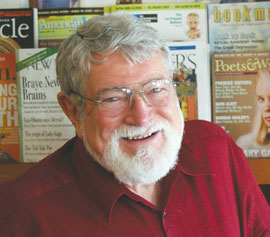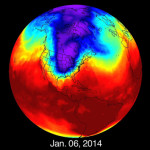The Chilling Effect of Trump’s Climate Actions on the Climate Community
Jonathan Cloud February 8th, 2025
The non-governmental organizations and institutions dedicated to climate mitigation and adaptation have long been the backbone of efforts to curb greenhouse gas emissions, develop sustainable technologies, and build resilient communities. However, the chilling effect of Donald Trump’s climate policies has cast a shadow over this critical work, obstructing progress at a time when urgent action is needed more than ever.
Trump’s systematic dismantling of climate policies—ranging from withdrawing the U.S. from the Paris Agreement to rolling back emissions standards and cutting climate research funding—has created a hostile environment for those working in climate science, renewable energy, and environmental advocacy. With government leadership retreating, NGOs and private organizations face increased challenges in securing funding, influencing policy, and mobilizing public support for meaningful climate action.
Yet reducing global greenhouse gas emissions remains urgent. By reversing its climate policies, the U.S. is not only losing valuable time but actively accelerating the depletion of its remaining carbon budget. As climate models have long predicted, predictable climate-related disasters—wildfires, hurricanes, droughts, and sea—level rise—are arriving sooner and with greater intensity.
Recent reports confirm that we have already surpassed the critical 1.5°C warming threshold, and leading climate scientist James Hansen warns that surpassing 2.0°C is now inevitable. As Hansen states, “At the current rate, the Paris Agreement goal of limiting global warming to somewhere between 2.7 degrees and 3.6 degrees Fahrenheit (1.5-2 degrees Celsius) is pretty much dead.” (Source: [Inside Climate News](https://insideclimatenews.org/news/04022025/james-hansen-research-documents-global-warming-acceleration/)).
This stark reality underscores the importance of renewed and intensified efforts within the climate action community. Despite the chilling effect of political backtracking, non-governmental organizations, businesses, and individuals must redouble their commitments to carbon reduction, policy advocacy, and sustainable innovation. The fight for a habitable future cannot be abandoned—regardless of governmental roadblocks.
The challenge now is to rebuild momentum and push forward in the face of obstruction. The scientific consensus is clear: the climate crisis is accelerating, and every fraction of a degree matters. Whether through grassroots activism, corporate sustainability commitments, or local policy initiatives, the climate community must continue to act decisively. The cost of inaction is far too high.
(Originally published at DeadRiverJournal.org)



